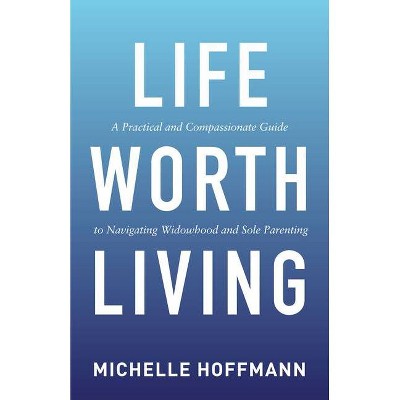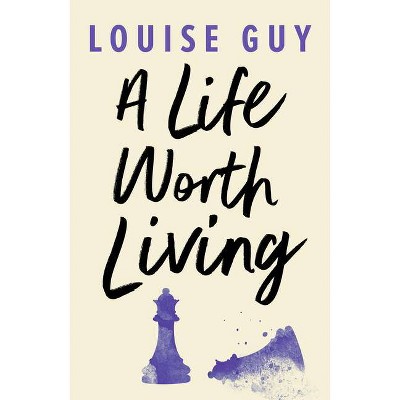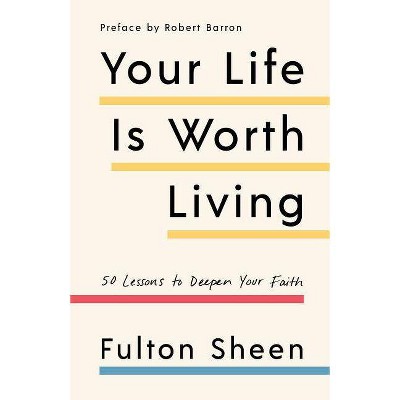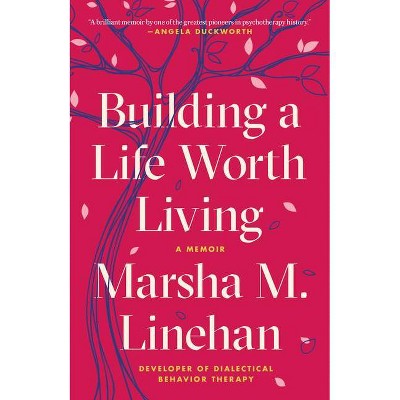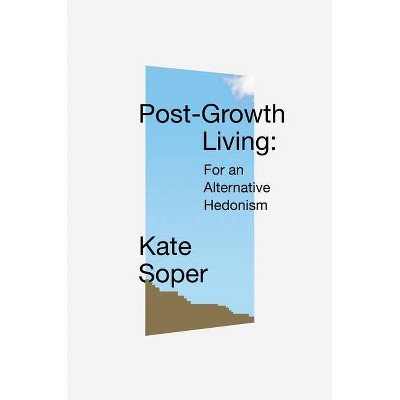The Evolution of life worth living - by C A Soper (Paperback)
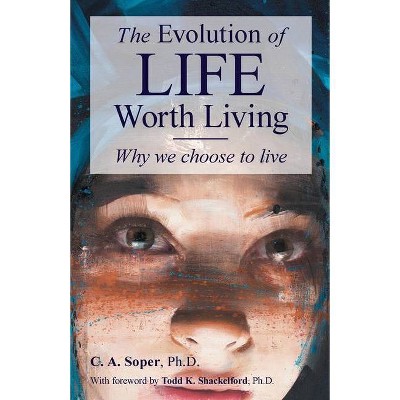
Similar Products
Products of same category from the store
AllProduct info
<p/><br></br><p><b> About the Book </b></p></br></br><p>A new theory of our species' evolution; shedding light on several long-standing puzzles in human psychology. Psychiatric disorders, altruism, and spirituality are explained as adaptive defenses by which the human mind avoids suicide. </p><p/><br></br><p><b> Book Synopsis </b></p></br></br><p>Why do most of us enjoy being alive? Psychologist Dr C A Soper argues that a zest for life evolved as a survival necessity, ultimately because our species, and ours alone, has to live with the possibility of suicide. Suicide may have been our ancestors' most formative evolutionary problem, solutions to which have shaped the construction of the human mind and touch on almost every aspect of our day-to-day experience. The emergence of anti-suicide defences by natural selection may explain our capacity for optimism, faith, love, charity and other delights of being human. This book explains how the most pleasing features of our psychology arise from the darkest of possibilities.</p><p>Life worth living is thus traced to the evolution of suicide. A major cause of human mortality, suicide takes the lives of some million people around the world each year. The origins of the behaviour have long mystified science; despite more than a century of enquiry, science does not know why some people kill themselves, while most people don't. </p><p>Progress in suicidology has been blocked, by what Soper sees as a fundamental flaw in the field's leading paradigm - the idea that suicides happen because of some, as yet unknown, predictable process of cause and effect. A new paradigm is offered, based on evolutionary science. Suicide is reframed as an evolutionary puzzle: how is that natural selection created an animal with the capacity to wilfully kill itself? The cost is extreme; measured by biological outcomes, suicide is literally a fate worse than death. </p><p>Two existing evolutionary theories of suicide are critiqued and found wanting: a 'burdensomeness' and a 'communication' hypothesis. The behaviour is better understood, says Soper, as an unfortunate side effect of two adaptations that come together uniquely in our species. One is the aversive experience of pain, especially psychological pain - an ancient stimulus that is designed precisely to induce the animal to act to end it. The other is extraordinary intelligence of the mature human, an animal so smart that it knows it can end pain by ending its own life. When these 'pain' and 'brain' elements combine, as they do in all normal human adults, suicide would be the expectable outcome. The scientific puzzle, then, is not so much why some humans die in this way, but why the great majority of us do <em>not</em>.</p><p>As the book explains, most of us do not take our own lives thanks to the protection afforded by ancient evolved psychological defences. An evolutionary argument of special design is used to predict some likely characteristics of anti-suicide systems - features that would be expected based on the task that they were biologically designed to fulfil. They would block suicidal trajectories by dulling emotional pain and disabling high-level cognitive functions among people suffering from chronic emotional distress. Perhaps counter-intuitively, this analysis points to diverse varieties of mental disorder - depression, addiction, psychoses, and others - as manifestations of emergency psychological defences, labelled <em>keepers</em>. </p><p>Other anti-suicide defences, labelled <em>fenders</em>, are hypothesised to operate to ensure keepers activate only as a last resort. They work to keep most of us fairly happy most of the time, in part by furnishing each of us with a benign, but semi-illusory, enhanced reality to live in. In this light, the human tendencies for religious belief and unconditional love may be understood as part of a life-preserving system of psychological buffers.</p><p>The book's 'pain and brain' theory provides a unifying explanation for several longstanding and puzzling phenomena in human psychology. It offers a novel paradigm that could integrate and assist progress in suicide research, psychiatry and psychotherapy.</p><p/><br></br><p><b> Review Quotes </b></p></br></br><br><p><em>"...stunningly crafted and succeeds in communicating an ingenious theory in eloquent prose that is deeply engaging but never sacrifices scientific accuracy." </em></p><p>- <strong>Todd K. Shackelford</strong>, PhD, Distinguished Professor and Chair, Oakland University.</p><p><br></p><p><em>"Stunning." </em></p><p>- <strong>Ronald W. Maris</strong>, PhD, Distinguished Professor Emeritus of Psychiatry, Family Medicine, and Sociology, University of South Carolina</p><p><em>"I have always thought that we are asking the wrong question. We have puzzled over why people kill themselves. Surely the more relevant question is why most people do not kill themselves. Our lives are painful some of the time and, for some people, most of the time. It would be rational for us to die by suicide. </em></p><p><em>"Cas Soper's new book answers this question in a convincing manner. He shows how, in the course of evolution, we have developed anti-suicide adaptations that keep us alive when suicide would be a rational choice. He turns the field of suicidology upside-down by arguing that the risk factors for suicide that we have studied for many years are instead protective factors! </em></p><p><em>"This book is a must-read for all suicide researchers and those involved in suicide prevention, as well as other mental health professionals." </em></p><p>- <strong>David Lester</strong>, PhD, Emeritus Professor of Psychology, Stockton University</p><p><br></p><p><em>"</em></strong><strong><em>The most important theory of suicide in the current literature</em></strong></p><p><em>"This is an important book setting out ground-breaking ideas about the roots of suicide. I have read Cas Soper's new book as well as his previous book, both of which are based on his PhD thesis proposing a new evolutionary theory of suicide. In my view Cas' 'Pain and Brain' theory of suicide is the best explanation for suicide in the current literature, evolutionary or otherwise. His new book is aimed at the general public and goes further in developing the consequences and implications of his theory that provides a theory to explain the origins of happiness, love and religion as well as functional mental disorders (this bit, some psychiatrists may find controversial).</em></p><p><em>"The theory Cas presents is rigorously argued and he meticulously references research findings and other relevant literature. The book should be of interest to evolutionists from diverse fields including psychology and psychiatry, suicidologists, mental health professionals as well as anyone interested in understanding the human condition.</em></p><p><em>"It is unfortunate that the hardback of his first book was priced out of reach of many potential readers but this one should hopefully get the attention it deserves."</em></p><p>- <strong>Riadh Abed</strong>, FRCPsych</p><p>Former (Founding) Chair of the Evolutionary Psychiatry Special Interest Group at the Royal College of Psychiatrists (UK)</p><p><br></p><br>
Price History
Price Archive shows prices from various stores, lets you see history and find the cheapest. There is no actual sale on the website. For all support, inquiry and suggestion messages communication@pricearchive.us
